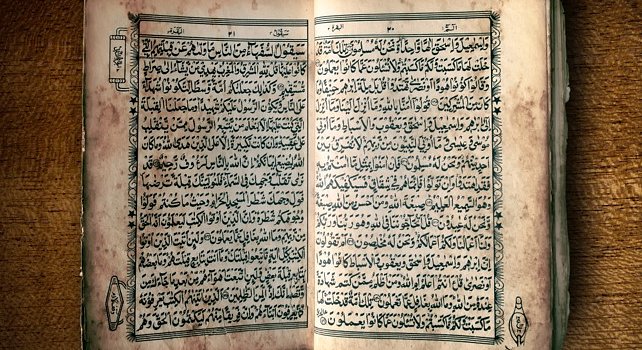Language and religion
Language
The official language in Morocco is Modern Standard Arabic, although recent constitutional changes give the Berber language greater status. French (from the colonial period of the French Protectorate which ended in 1956) is still used for tuition, business and government purposes, although English is becoming increasingly important. In the former Spanish-occupied territories of the Mediterranean and Atlantic Coasts, some older people still speak Spanish. On a day-to-day basis and in the home, Moroccans use the Moroccan dialect of Arabic or a local Berber dialect. Remarkably, neither of these is taught in school, meaning that most Moroccans are multi-lingual.
There are three main Berber languages, although a standardised form of Tamazight (language of the Imazighen, ie the Amazighs or Berbers) is now becoming more current in written form, in an alphabet known as Tifinagh, which consists of symbols resembling a cross between runes and Korean . The spoken languages have some similarities, although certain vocabulary is completely different. Tashelhit (or Shilha) is the Berber language spoken by the most people in Morocco and is indigenous to areas of southern Morocco (Souss-Massa-Draa) as well as the Anti-Atlas and High Atlas mountain regions and the Marrakech area. Other groups in the High and Middle Atlas speak a language commonly referred to as Central Atlas Tamazight. Finally, the northern Berbers of the Rif Mountains generally speak Tarifit.
At least 80% of all Moroccans understand the local dialect of Arabic, known as Darija. Although based on Arabic, it is a very flexible language and has evolved a long way from its eastern neighbours. Darija absorbed a significant amount of French vocabulary during the Protectorate period and continues to absorb modern phrases from any languages its speakers come into contact with.
Although visitors can get by with French (and, increasingly, English), Moroccans always appreciate it if travellers make an effort to learn even a few basic phrases of Darija.
Useful Moroccan Arabic (Darija) phrases
SALAM ALAIKUM – hello
W’ALAIKUM SALAM – hello in reply
KIF HALEK? – how are you?
LABASS? – How are you?
LABASS, HAMDULLILAH – I’m fine, thanks be to God
KULSHI MEZZIEN – Everything is good
SMIT-EK? – what is your name?
B’SH-HALL – how much?
BZEFF – too much
SAFI - enough
SHUKRAN – thank you
LA SHUKRAN ALA WEJIB - you’re welcome (in repsonse to ‘shukran’)
B’SLAMA – good bye
SBA ELHAIR – good morning
LAYLA SAIDA – good night
IYEH – YES
LA - NO
INCHALLAH – If God Wills it
HAMDULLILAH – Thanks to God
MAKEYN MUSHKIL – no problem
Religion
Not only is Morocco is a majority Muslim country; Sunni Islam is the constitutionally established state religion. The King of Morocco claims his legitimacy as a descendant of the Islamic prophet Muhammad.
Every village and urban neighbourhood has at least one mosque. During your visit to Morocco, you will become accustomed to the call to prayer, which summons the faithful five times a day, starting at dawn. Friday is a special day in the Muslim week and congregations are often so large that they spill onto the surrounding streets. Mosques are generally closed to non-Muslims, with the notable exceptions of the Hassan II mosque in Casablanca and the historic Tin Mal mosque in the High Atlas Mountains.
Further information on Religious Festivals can be found on the Religious Festivals page.
Morocco has had significant Jewish populations in the past and the current King has placed great emphasis on promoting this historical religious diversity. Although the Jewish population is much depleted today, synagogues still operate and religious festivals are celebrated regularly - often attended by large numbers of Moroccan Jewish diaspora.
Most cities of any size have one or more churches, mostly Roman Catholic and dating from the French Protectorate period. However, older Spanish and Portuguese presences along Morocco’s coasts have also left their mark in the form of former religious buildings and cemeteries.
Morocco is an open and tolerant country. However, there are certain cultural practices related to Muslim culture that visitors should be sensitive to. These are outlined in our cultural etiquette section.

